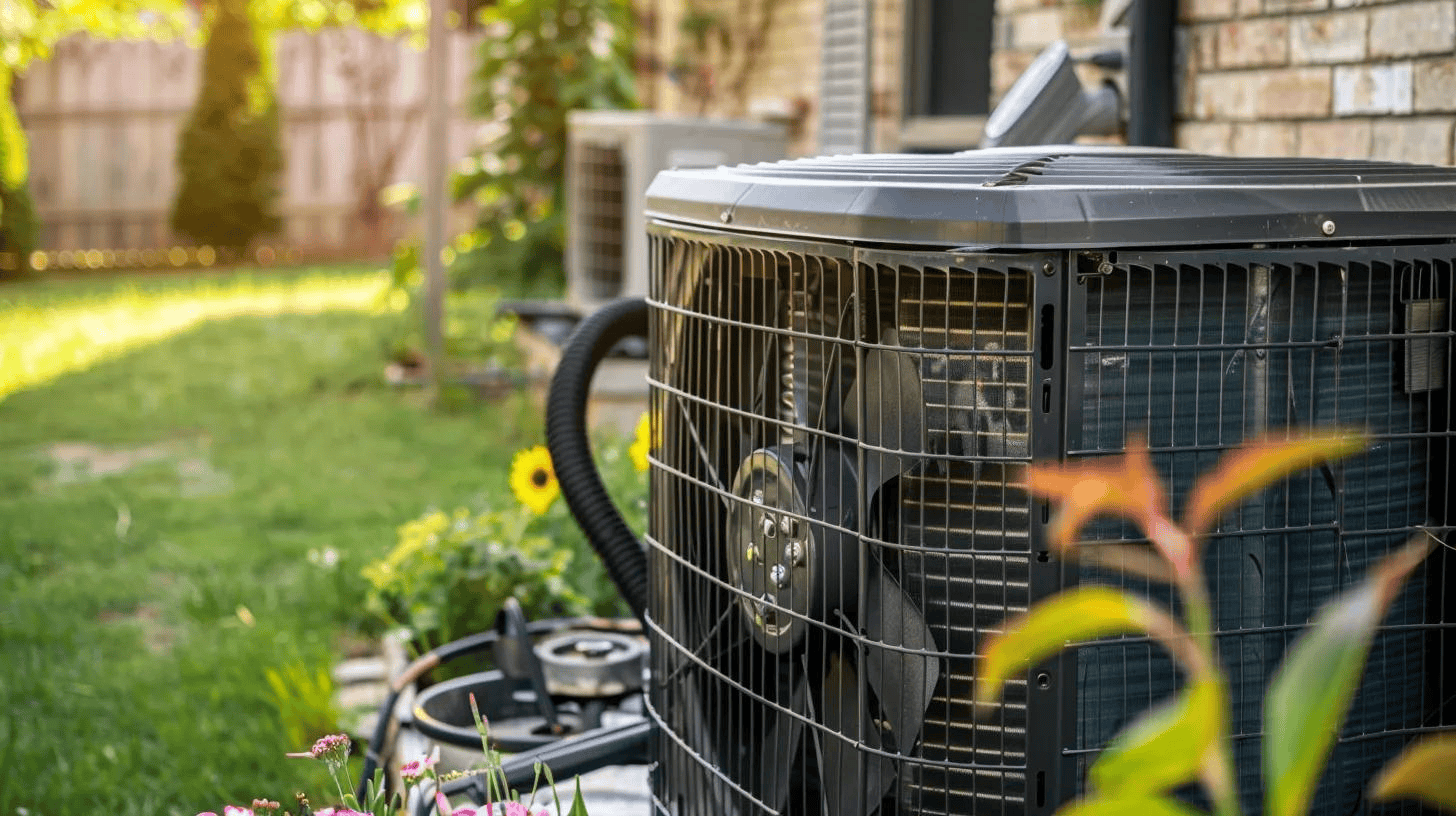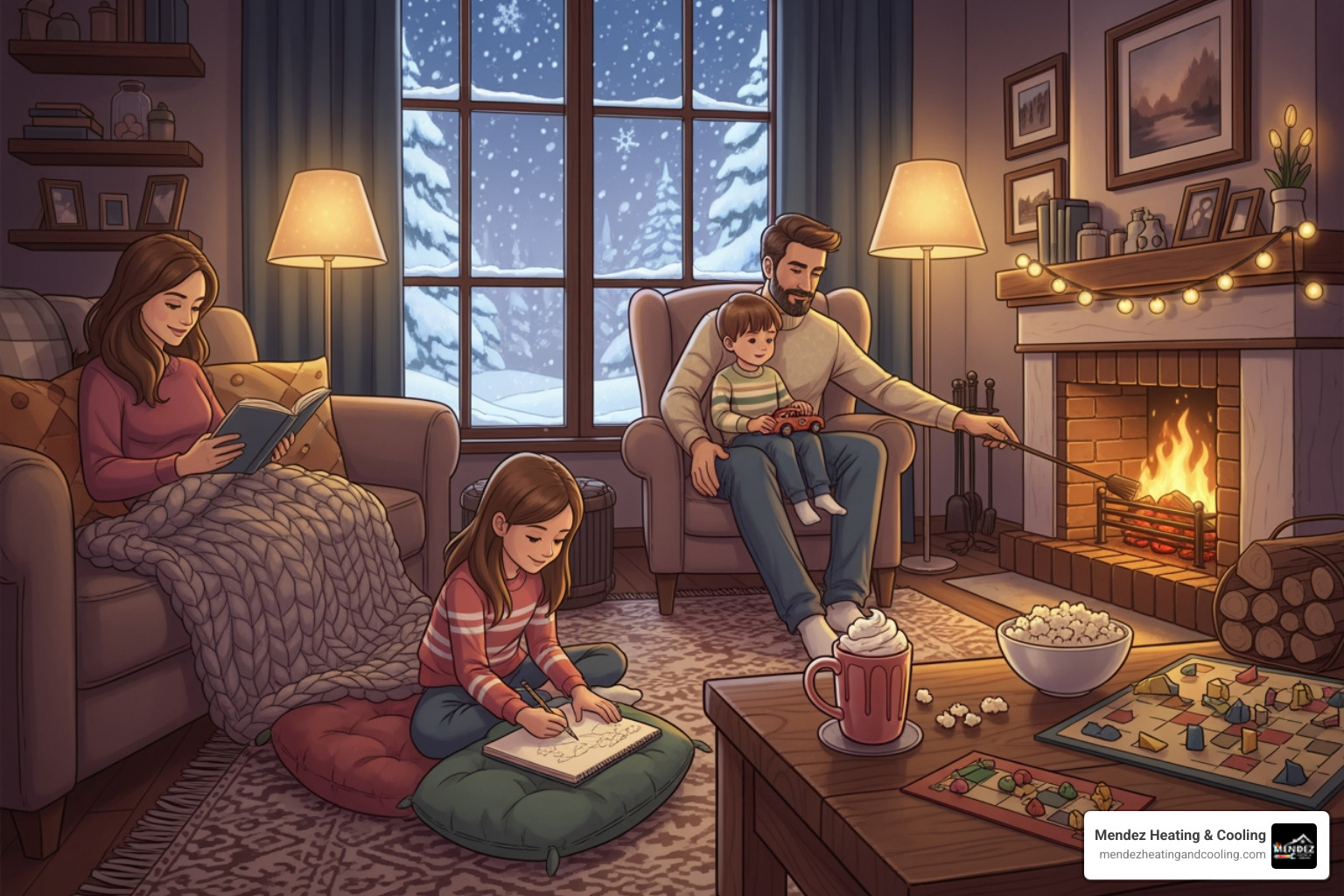Why Is My Furnace Making Clicking Noises in Easton?

That sudden clicking noise coming from your furnace can catch you off guard. Maybe it just started this week, or maybe it’s been happening every time the heat kicks on. Either way, it’s hard to ignore. Unexpected furnace sounds, especially clicking, often leave homeowners in Easton wondering if it’s a sign of something big or just a minor annoyance. When your heating system acts up, it helps to know what those sounds might mean and what steps you should take next.
Living in Easton, where the colder months demand reliable heating, furnace issues can’t be ignored. Clicking noises shouldn’t be brushed off as part of normal operation. They often point to a deeper issue, especially when they become more frequent or louder over time. Whether it’s happening at startup, shutdown, or randomly throughout the day, understanding the source of the noise early can save you money and stress later.
Common Causes Of Clicking Noises In Easton Furnaces
Furnace clicking sounds usually don’t come out of nowhere. There’s often a specific reason behind the sound, and most issues tend to come from one of a few areas in the system. Here are the most common sources our team has seen when homeowners report clicking noises in Easton homes:
1. Loose or Damaged Components
When screws, panels, or internal parts come loose, they can vibrate and cause clicking or tapping noises as the furnace cycles on or off. This could be something simple like a loose panel near the blower or a part inside the housing that’s bouncing around. Over time, heat and movement can cause fasteners to weaken or come undone, especially if the system hasn’t been looked at in a while.
2. Ignition System Issues
If the clicking sound happens mostly when the furnace starts up, it could be related to the ignition system. A malfunctioning igniter, dirty sensor, or faulty spark electrode can cause the furnace to attempt ignition several times in a row, leading to repetitive clicking. In gas furnaces, the click should be followed shortly by the sound of ignition. If it keeps clicking without firing up, that’s a sign something’s off.
3. Air Duct Problems
Sometimes the sound isn’t caused by the furnace itself but by the ductwork connected to it. As warm air moves through cold metal ducts, the sudden temperature changes can make them expand and contract. This might result in clicking, tapping, or even popping noises. Poorly supported or loosely connected ducts can make the noise worse by allowing parts to shift with airflow pressure.
In one example, a homeowner in Easton reported clicking followed by a short delay in heating. It turned out to be a misaligned flame sensor causing multiple ignition attempts. The fix was quick, but catching it early helped avoid a total shutdown.
Furnace clicking isn’t always serious, but it shouldn’t be ignored. If the cause isn’t clear or the sound gets louder or more frequent, it’s time to get it checked by trained professionals. Taking action early helps prevent long-term damage.
How Clicking Noises Can Impact Your Furnace's Performance
Clicking sounds might start as minor annoyances, but over time, they can directly affect how well your furnace performs. A damaged or failing part can reduce airflow, delay ignition, or disrupt even heating across your home. Even if you still feel warm air coming through the vents, underlying issues can impact efficiency and reliability.
Here’s how ignoring those clicks can lead to bigger problems:
- Reduced Efficiency: If parts inside the furnace are damaged or out of alignment, the system has to work harder to function normally. This added strain can lead to longer run times and more wear on essential components.
- Potential System Failures: Clicking that comes from electrical issues, loose wires, or broken ignition parts can escalate. If left unresolved, your system might fail to start altogether, especially during a cold snap.
- Increased Energy Bills: A struggling furnace burns more fuel and runs for longer cycles to keep up with heating demands. This inefficiency becomes noticeable on your monthly bills and in your home’s comfort level.
When a furnace stops operating smoothly, its heating cycles are often affected. This creates uneven temperatures throughout the home, shorter heat bursts, or delayed starts. If the clicking is tied to an ignition problem, it might take several tries for the system to fully engage, which puts extra stress on all parts involved.
When To Call Our Professionals For Furnace Repair In Easton
It can be tough to decide when a noise becomes a reason to call for help. While occasional sounds might seem harmless, some clicking noises are warning signs that shouldn't be pushed aside. If you’re unsure, taking a cautious approach is always better, especially during the colder months in Easton.
Call our technicians if:
- The clicking doesn’t stop after the heat turns on
- You hear clicking followed by no warm air
- You notice odd smells, especially burning or musty ones
- The noise suddenly gets louder over time
- There are frequent shut-offs or failed ignition attempts
Homeowners who wait too long often end up facing more expensive repairs down the line. If your furnace is older, or the clicking happens more than once a day, a professional inspection can help prevent a serious issue.
Regular maintenance also plays a key role in catching early signs of trouble. A technician can tighten loose components, clean elements tied to ignition, and check for ductwork problems that may otherwise go undetected.
Ensuring Your Furnace's Longevity With Proper Care
The best way to prevent clicking issues and extend your furnace’s lifespan is consistent maintenance. Just like a car needs an oil change, your heating system needs regular attention to keep running right. Skipping check-ups can cause minor issues to develop into major breakdowns.
Here are a few practical steps homeowners in Easton can take:
- Schedule annual inspections before heavy use in fall and winter
- Keep air filters clean and replace them at least every few months
- Listen for new or changing noises, and take note of when they happen
- Keep vents unblocked and airflow clear throughout the home
- Avoid adjusting the thermostat too frequently, which can strain the furnace
Early repairs often cost much less than emergency fixes during the peak of winter. If clicking noises continue, even after basic cleaning or filter changes, that usually means it’s time for a professional to take a closer look.
Trained technicians can diagnose noise sources quickly and recommend the right solution before your system struggles to keep up. Even newer systems need regular attention to stay in good condition. It's always worth the time to get ahead of furnace problems, instead of reacting after a cold night without heat.
Understanding And Addressing Furnace Clicking Noises In Easton
Clicking noises coming from your furnace aren't always a cause for panic, but they do mean something’s going on under the surface. From loose parts to ignition trouble, there are several possibilities that, if ignored, can turn into much bigger repair needs. The sooner those clicks are inspected, the easier and more affordable the fix often is.
Living in Easton, you rely on your furnace for steady, quiet warmth throughout the colder months. Keeping that system in good shape means recognizing when something sounds off and acting early. Whether it's happening at startup or continues through the heating cycle, a clicking furnace is something you shouldn’t ignore. Getting the issue checked out protects your home’s comfort and your system’s performance across the season.
If your furnace continues producing unusual clicking sounds during the winter months in Easton, it may be time to have our professionals inspect your system to prevent further issues. Mendez Heating & Cooling is here to help you maintain a warm and comfortable home. Consider scheduling furnace repair in Easton to address any potential problems before they escalate. For a quick estimate or to book a service visit, please contact us today.
Recent Blogs
Customer Testimonials
Ready to Transform Your Home?
.webp)













